Palestinian Perspectives on Escalating Iran-Israel Relations
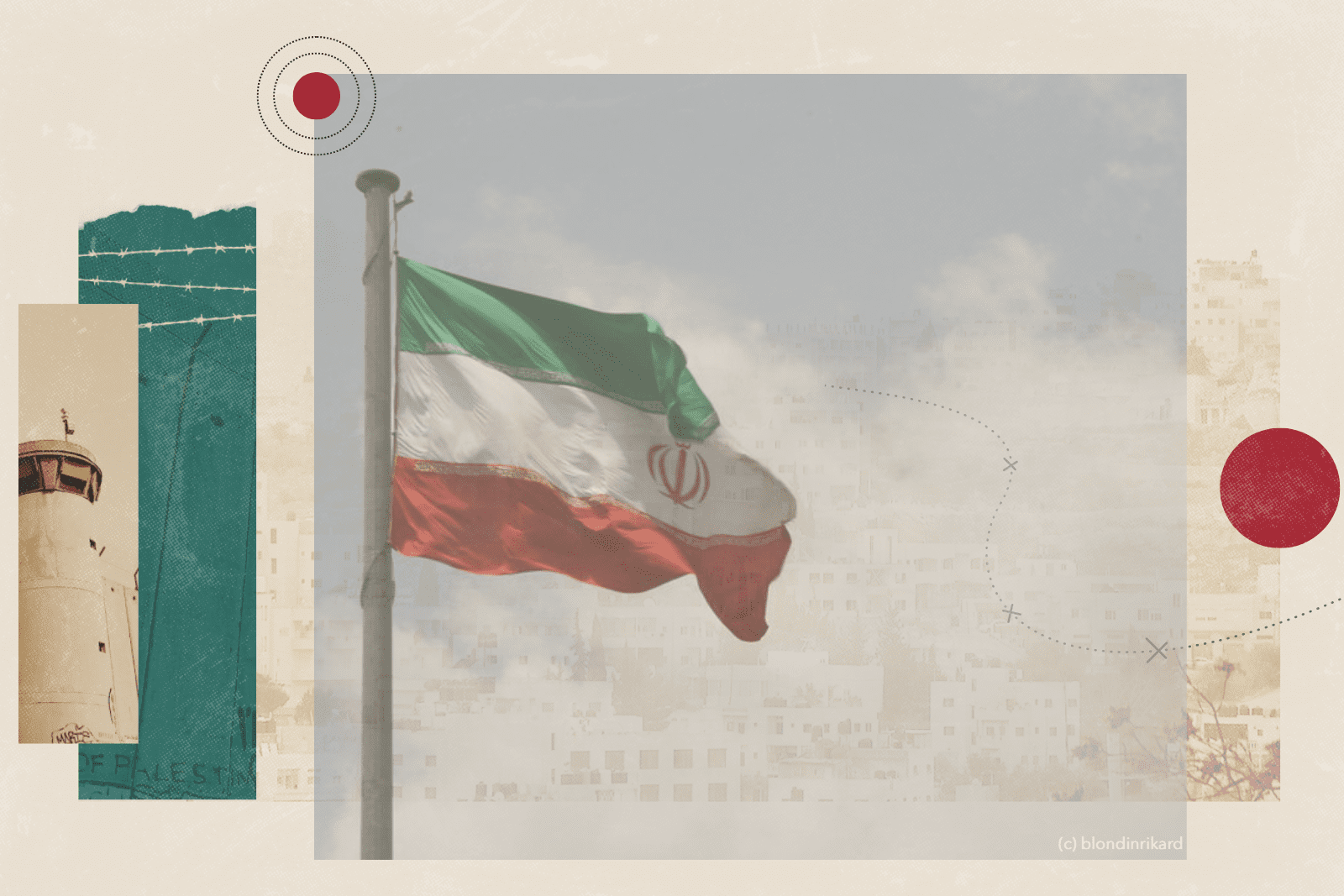
While simultaneously carrying out its ongoing genocide in Gaza, the Israeli regime attacked the Iranian embassy in Damascus, Syria, on April 1, 2024, killing seven Iranian officials. According to Iran, Israeli forces were intending to target a meeting between Iranian officials and Palestinian militants discussing resistance strategies in Gaza. Following the bombing, Iran promised to […]
The Gaza Genocide in Western Media: Culprits of Complicity

This commentary is based on a presentation delivered by Al-Shabaka Co-Director Yara Hawari at the 2024 Annual Palestine Forum, hosted by the Institute for Palestine Studies and the Arab Center for Research and Policy Studies in Doha, Qatar, in February, 2024. Introduction Since the beginning of the genocide in Gaza, Israeli regime bombardments and forces […]
Israel’s Disinformation Apparatus: A Key Weapon in its Arsenal
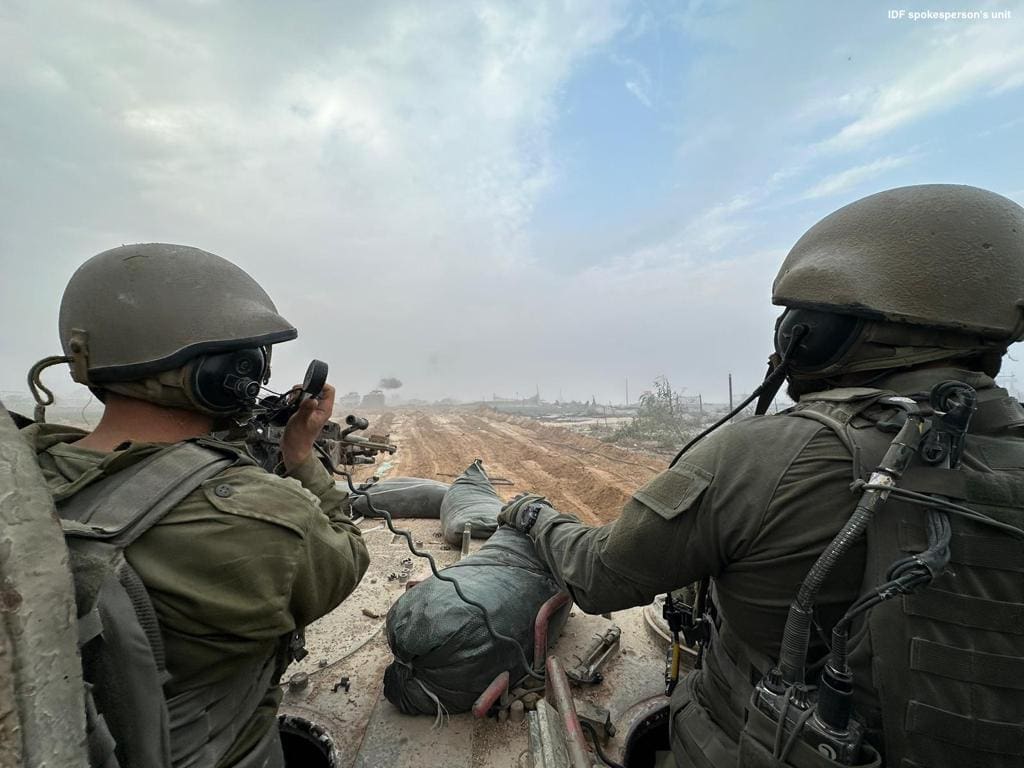
Introduction During campaigns of genocide and ethnic cleansing, disinformation is a potent weapon—a tool to dehumanize victims, justify mass violence, and most importantly, sow seeds of doubt designed to muzzle calls for intervention. When information is weaponized, confusion and doubt no longer emerge from the “fog of war” as a symptom, but are purposefully cultivated […]
Settler Colonial Spillover in the West Bank with Fathi Nimer
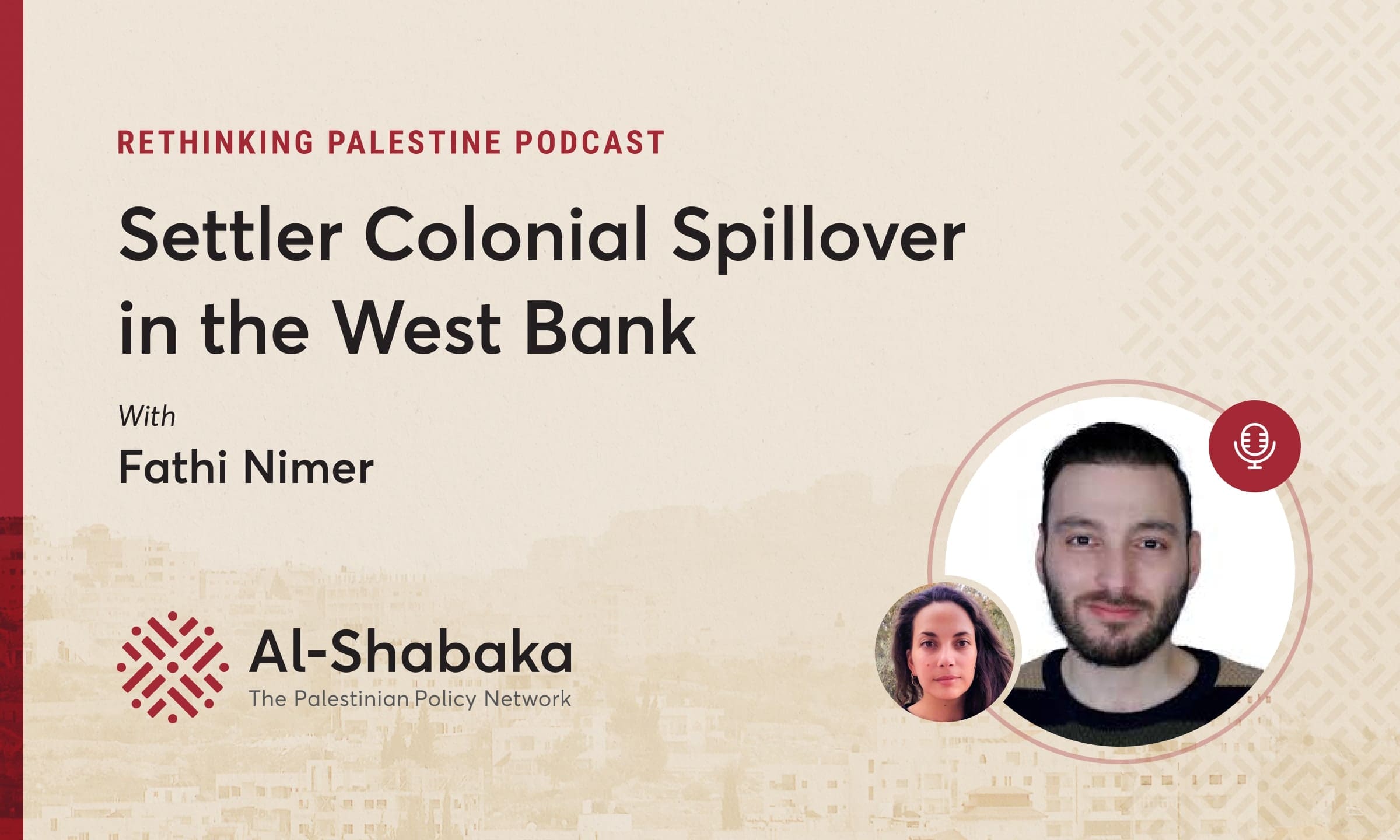
The transcript below has been lightly edited for brevity and clarity. Fathi Nimer 0:00 The plans for the West Bank can’t be seen in separation from the plans of the Gaza Strip. Even from the beginning of the war, people were talking about pushing the Palestinians of Gaza out into Sinai and re-establishing settlements again. […]
The West Bank: Settler Colonial Spillover of the Gaza Genocide
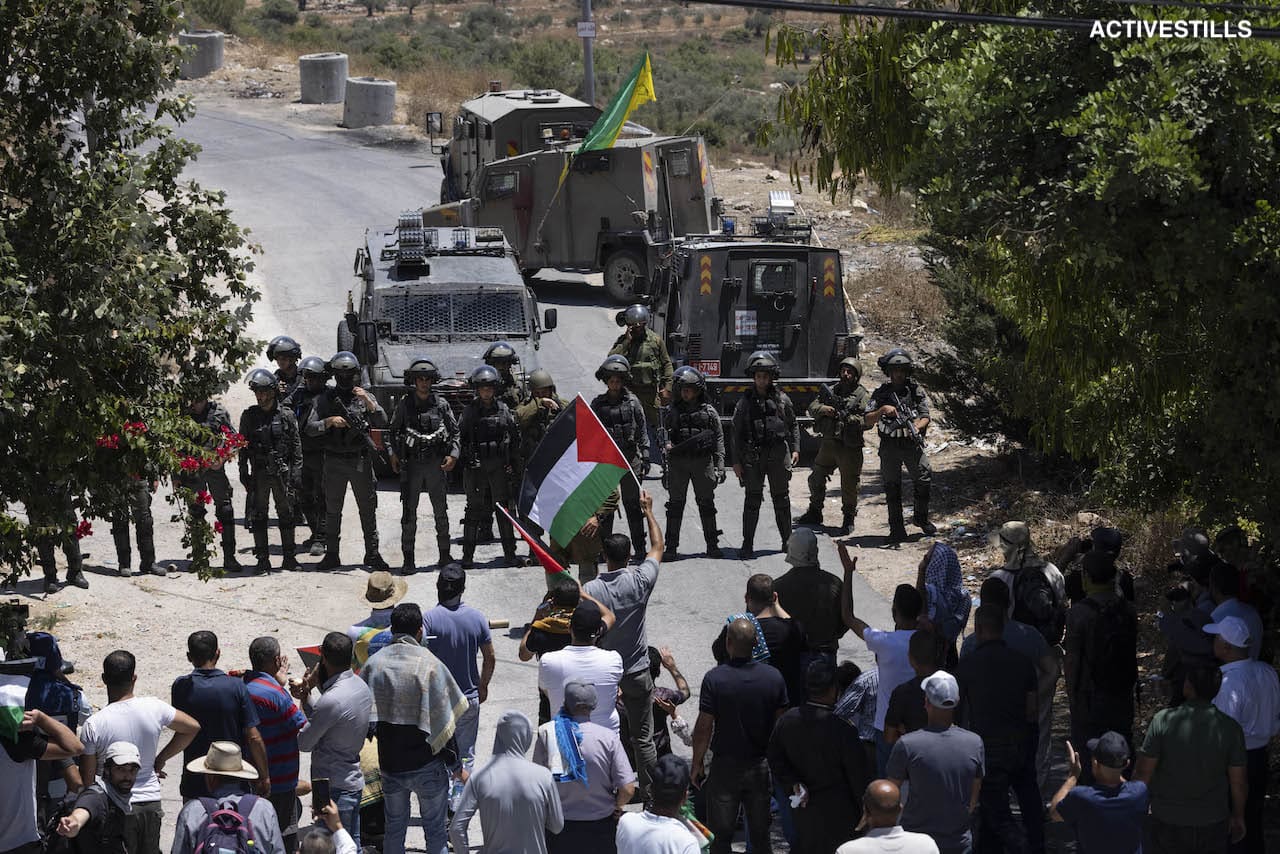
Since the assault on Gaza began in October, 2023, tens of thousands of Palestinians have been killed and nearly two million displaced. While the world deliberates on the technicalities of genocide, Israeli colonization of the West Bank and disruption to Palestinian life there has only accelerated.
In this roundtable, Fathi Nimer, Abdaljawad Omar, Basil Farraj, and Samia Botmeh discuss the situation in the West Bank since October 7th 2023. Parallel to the Israeli regime’s genocide campaign on Gaza, the authors delve into the false dichotomy between settler and state, the passivity of the Palestinian Authority (PA), the individual and collective imprisonment of Palestinians, and the dire state of the West Bank economy.
The Continuation of Zionist Settler Colonialism

The Israeli regime is currently committing genocide against Palestinians in Gaza, aiming to eliminate the Indigenous community through slaughter, starvation, and mass expulsion. While devastating, it is imperative to recognize that this practice is not new. Rather, it is part of Israel’s decades-long Zionist colonial project. In this commentary, guest author 24440 outlines three defining features of Zionist settler colonialism: its structural nature, strategy of elimination, and use of fragmentation. It is through these tactics, Nabulsi argues, that the Zionist project seeks to ultimately extinguish Palestinian Indigenous sovereignty.
The Arab World and Gaza Genocide with Elham Fakhro

The transcript below has been lightly edited for brevity and clarity. Elham Fakhro 0:00 So I think the question that civic movements across the Arab world are asking is, where is the ceiling here? Is there any point at which these governments are going to start taking real action? So while governments may be unwilling […]
What’s Required to Revive the PLO?
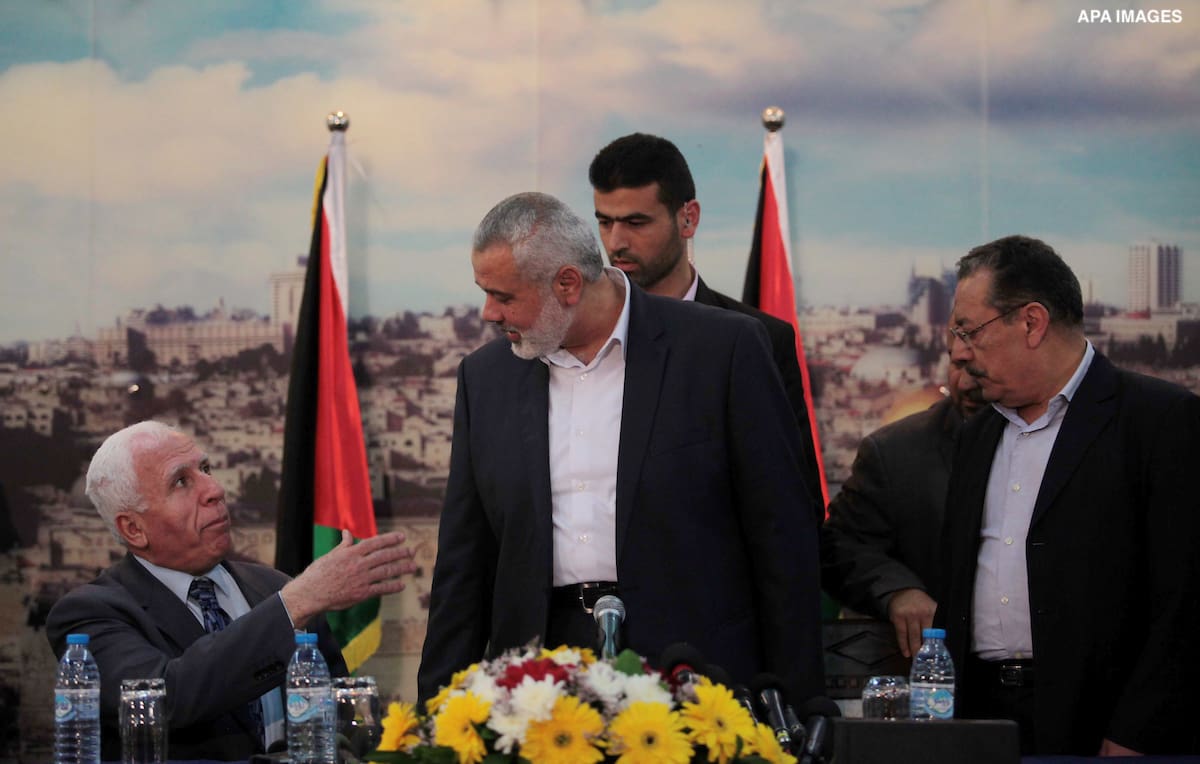
As the Israeli regime continues its genocidal campaign against Palestinians in Gaza, many have begun to weigh in on the future of Hamas and of Palestinian leadership more broadly once the bombardment ends. One of the dominant proposals is the revival of the Palestine Liberation Organization (PLO), with Hamas as a member party.
But revival of the PLO requires more than bringing Hamas into the fold, as the Fatah-controlled PA has effectively whittled down the PLO to a barren institution. What then, beyond inclusion, is needed in order to resuscitate the viability of the PLO? In an effort to strengthen the generative thinking around these questions, Al-Shabaka revisits a collection of its past works that sought to confront this very topic.
An Inevitable Rupture: Al-Aqsa Flood and the End of Partition
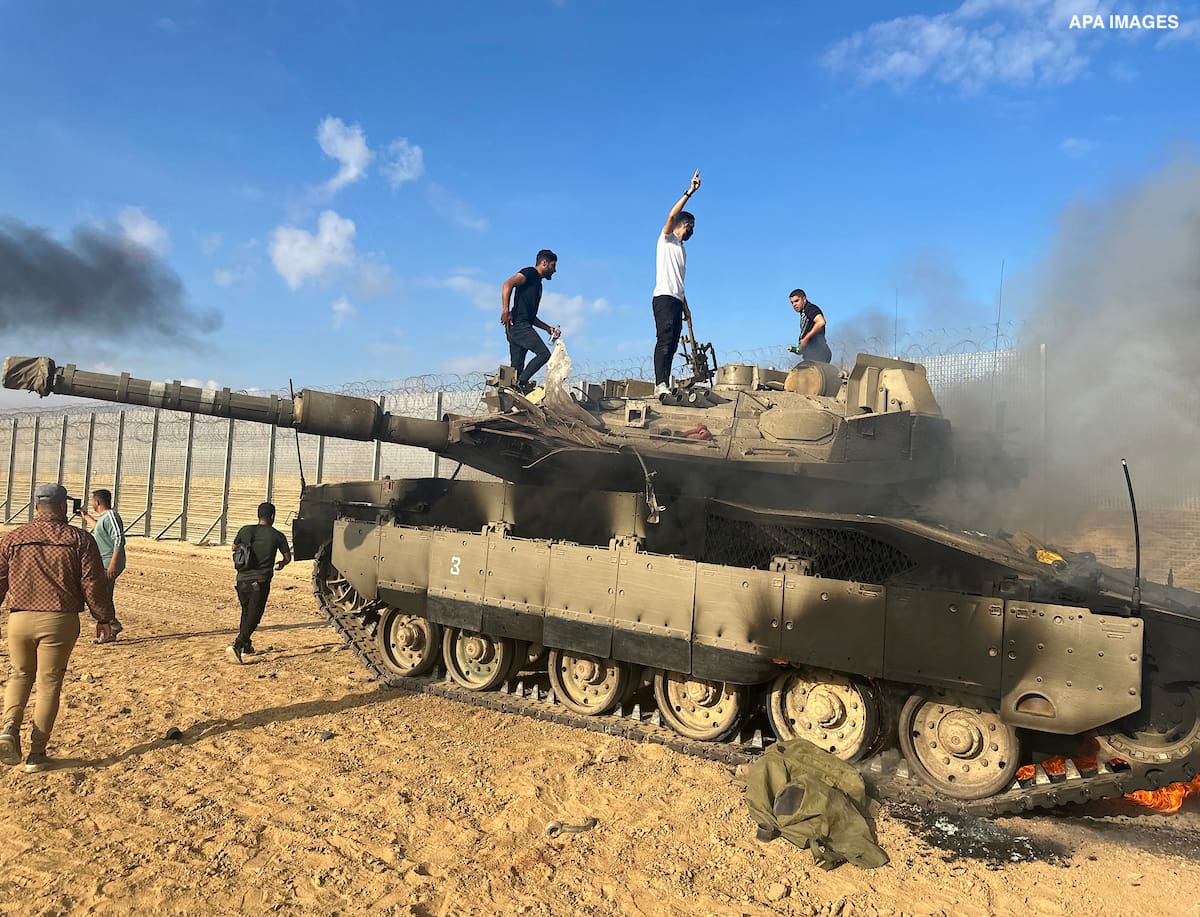
Hamas’s surprise offensive on October 7th, 2023, dealt the most lethal blow to the Israeli military and public since Israel’s establishment in 1948. In retaliation, Israel launched the most extensive military assault on Gaza in its history. The speed with which Israel mobilized and the scale of its assault underscore the Palestinian conviction that the settler colonial regime is executing long-held plans for mass expulsion. Against this backdrop, Al-Shabaka Board President Tareq Baconi anchors Israel’s latest assault on Gaza in its wider context. He unpacks Israel’s ghettoization of Palestinian land and pinpoints Hamas’s Al-Aqsa Flood operation as a moment of rupture for the partition framework, bringing the question of what comes after partition to the forefront.









